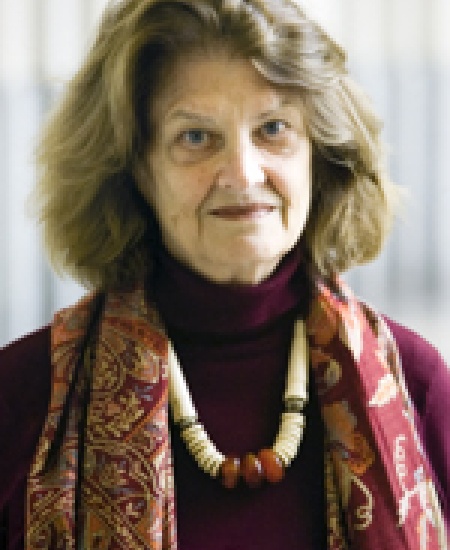“Western feminism.” “Islamic feminism.” “Secular feminism.” What do they mean? Paola Bernardini rightly points out that there is no (singular) “Western feminism.” Many feminisms have been generated in diverse parts of the West at various historical moments. In short, the term “Western feminism” is empty.
Islamic Feminism
As a historian of feminisms in Muslim societies I have followed the rise and spread of the new feminist paradigm that Muslim secular feminists, when witnessing its appearance in the late 1980s and early 1990s, called “Islamic feminism.” They gave the name Islamic feminism to the emergent discourse of gender equality and social justice grounded in women’s re-readings of the Qur’an and other religious texts. Islamic feminism is not an identity; it is not necessary to be a Muslim to be an Islamic feminist but simply a person who uses the discourse of Islamic feminism in her, or his, articulation of and quest for the practice of gender equality as part of human equality.
This usage contrasts with the way the term “Islamic feminism” is now bandied about so loosely. Now it is often taken by observers to mean any gender thinking and practice advocated by Muslim women — who are blithely labeled “Islamic feminists.” But such so-called “Islamic feminism” typically represents a patriarchal version of Islam, albeit mainly a “soft patriarchy” in which complementarity overrides equality.
Islamic feminists or “gender egalitarianists,” like secular feminists today, are wary of the obsessive fore-fronting of complementarity in the mainstream patriarchal discourse and practice of Islam. This is because the notion of complementarity is used to uphold differential and unequal roles — for women and men in the family, which patriarchalists are fond of reiterating, is “the cell of society” — as ordained by God.
Secular Feminisms: Egypt vs. Tunisia
When we speak of the secular feminisms advocated by many women in Muslim-majority countries today we need to carefully contextualize. For example, Egypt, of which I shall speak, is not Tunisia. In Egypt the “feminism” women created early last century was also referred to as “secular feminism” to indicate a feminism that was not a communally based feminism but inclusive of all Egyptians. “Secular” thus signaled “Egyptian.”
Egyptian or secular feminism had space for and respected religion and religious difference without using religion, or one particular religion, as its overarching framework. Islamic modernist discourse was part of the secular feminist discursive repertoire. In other places, notably in North Africa, with its more intrusive colonial experience — far more culturally invasive that that of Egypt — secular feminism was virtually devoid of a religious dimension.
In Egypt today, there is no polarity between secular feminism and Islamic feminism. Indeed secular feminists in advocating for reform of the Muslim Personal Status Laws — also called family law — have always used and continue to use Islamic feminist argument. And this they must do in order to have any hope of reforming family law, which is the only kind of law in Egypt explicitly based on interpretations of Islamic religious sources.
Complementarity and the Patriarchal Discourse of Unequal Power
There is, however, contention. The contention is between, on one side, secular and Islamic feminists who are protagonists of equality and, on the other side, Muslim patriarchalists who vociferously eschew and undercut equality. For patriarchalists, equality is cancelled by what they insist is the divinely ordained dictum of complementarity, which places “the man” in charge of protecting “the woman” from whom obedience to “the man” is extracted in return for support. Secular and Islamic feminists unwaveringly support the practice of equality for all insan, all human beings. They have deconstructed and exposed the use of an imposed notion of complementarity, which aims at sustaining and shoring up inequality and, in so doing, patriarchal hegemony and power. Islamic and secular feminists alike focus on the idea of equality from which positive, free interactions between human persons can spring in just and free societies.
The article in the Tunisian draft that offended feminists in Tunisia and elsewhere referred to “her [woman] as a true partner with man in building the nation.” Why not simply say that all Tunisians are partners with one another in building the nation? This would echo the spirit of the Qur’an (9:71): “The believers, male and female, are awliyya (helpers, supporters) of one another.
In the Qur’an, Man and Woman Are Mutual — and Equal — Partners
Furthermore, the Qur’an explicitly teaches that the male and female are zawj or a partner to one another. In Qur’anic Arabic zawj is the single term for partner. In modern Arabic there are two words — female zawja and a male zawj — which are used to indicate husband and wife. Islamic scripture does not declare that “the woman is the true partner of the man” but rather both are partners of each other. Complementarity in the Qur’an may be seen as embedded in the concept of equal partnership.
Complementarity is not made explicit and gendered such that “the woman” complements “the man” in a pyramid of inequality. That sort of pyramid is not something that either Islamic feminists or secular feminists want in Egypt.

